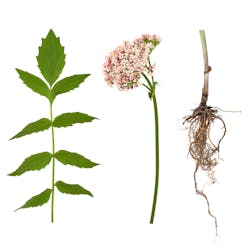Sleep deficiency is a common public health problem in the US, as reported by the US Centers for Disease Control and Prevention (CDC). (1) Sleep deficiency affects all age groups, sexes, and ethnicities. An estimated 50-70 million Americans have chronic sleep disorders. Even a loss of just 1-2 hours per night can affect your ability to function. (2)
An occasional bad night’s sleep is inevitable, but frequent sleep deficiency has been linked to chronic health problems (e.g., heart and kidney disease, high blood pressure, diabetes, stroke, obesity, depression). Sleep deficiency can also result in difficulty learning, focusing, and reacting. (3) It can also result in moodiness and anxiety, and even worse, to poor decisions and accidents, such as boating and train disasters, or even nuclear meltdowns. (4) Sleepiness is a factor in about 100,000 car accidents a year, resulting in an estimated 1,500 deaths. (2)
READ MORE | Aromatherapy: Science or fiction?
There are many reasons for sleep deficiency, such as job pressures; being connected 24/7; emotional stress; caring for small children and the ill or elderly; alcohol; drugs; and shift work. Light regulates your internal body clock. Even the light from electronic devices like telephones, tablets, e-readers, and TV can interfere with or disrupt sleep. Your body releases melatonin when your surroundings are dark, which helps the body prepare for sleep and stay asleep.
Tips for a good night’s sleep
Get your body ready for sleep while the sun is still up. Prepare to wake up and go to bed at the same time each day to reinforce the body’s sleep-wake cycle. Get outside in the daylight, and exercise regularly, but not too close to bedtime. Do not take long naps—nap for only 15-20 minutes in the midafternoon, if needed. A “before bed” routine can help convey to the body that it is time to wind down. A warm bath or shower with lavender or angelica oil, avoidance of electronic screens for one hour before bed, and a healthy, satisfying snack may be part of a routine. Create an environment with a comfortable mattress, pillow, and sheets that is cool, dark, and quiet. If don’t fall asleep within 15 minutes, get out of bed—read, write in your journal, or listen to soft music until you feel ready to try again. (5, 6)
READ MORE | The therapeutic use of essential oils in ancient and modern times
Medicinal-grade essential oils can help to sleep whether they diffused in the room or inhaled directly. Place drops on the palms of your hands, rub them together, then cup hands over your nose and inhale deeply. Another option is to place essential oil drops on pillows or tissues near the head, or place them on the temples, the back of the neck or shoulders, or under the nose. Massaging 1–2 essential oil drops onto the feet is a good option, especially for children. When traveling, place a drop or two on a cotton ball and place it in the air vent in the room. Essential oil containing supplements have been found useful for promoting sleep as well. (7)
Lavender is probably the most common oil for relaxation. Valerian calms the mind, enabling one to fall asleep easier. For more information on Valerian, visit the National Institutes of Health, Office of Dietary Supplements Valerian Fact Sheet for Health Professionals.
Other helpful oils include goldenrod, roman chamomile, orange, mandarin, and neroli. (8) Vetiver also works well. Some say when they want to really relax and feel serene and at peace, marjoram is it! Stress Away, a blend of oils including vanilla, helps relieve stress and tension. Another blend, Peace and Calming, helps create a calming and relaxing environment and is a favorite for children and pets.
References
1. Insufficient sleep is a public health epidemic. Centers for Disease Control and Prevention. http://www.cdc.gov/Features/dsSleep/index.html. Updated January 13, 2014. Accessed May 13, 2015.
2. Why is sleep important? National Heart, Lung, and Blood Institute. http://www.nhlbi.nih.gov/health/health-topics/topics/sdd/why. Published February 22, 2012. Accessed May 13, 2015.
3. What are sleep deprivation and deficiency? National Heart, Lung, and Blood Institute. http://www.nhlbi.nih.gov/health/health-topics/topics/sdd/. Accessed February 22, 2012. Published May 13, 2015.
4. Miller MM, Carskadon MA, Czeisler CA, Dement WC, Dinges DF, Graeber RC. Catastrophes, sleep, and public policy: Consensus report. Sleep. 1988;11:100-9.
5. Sleep tips: 7 steps to better sleep. Mayo Clinic. http://www.mayoclinic.org/healthy-living/adult-health/in-depth/sleep/art-20048379. Published June 9, 2014. Accessed May 13, 2015.
6. How to sleep better: Tips for getting a good night’s sleep. HelpGuide.org. http://www.helpguide.org/articles/sleep/how-to-sleep-better.htm. Published May 13, 2015.
7. Gyllenhaal C, Merritt SL, Peterson SD, Block KI, Gochenour T. Efficacy and safety of herbal stimulants and sedatives in sleep disorders. Sleep Med Rev. 200;4:229-251.
8. Life Science Publishing. Essential Oils Desk Reference. 5th ed. Orem, Utah: Life Science Publishing; 2014.








